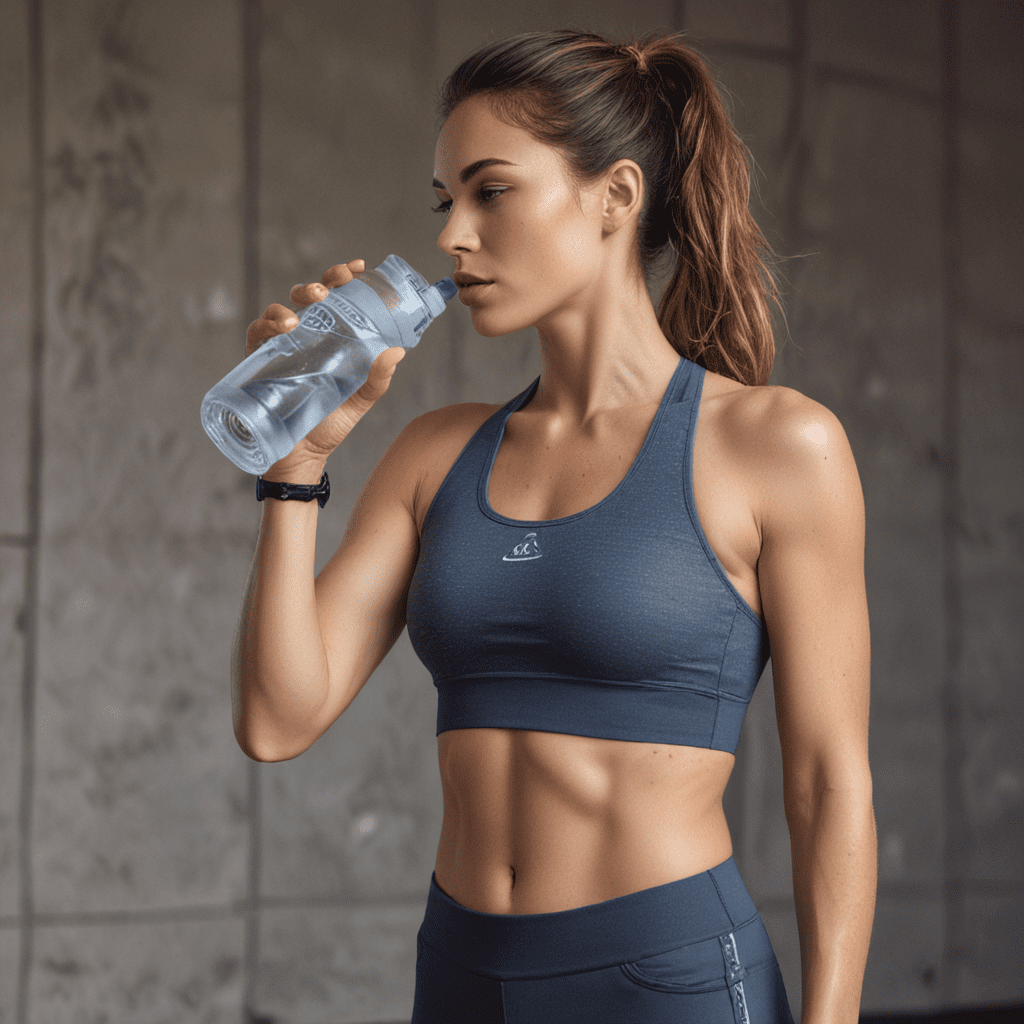
The Importance of Hydration for Overall Health
1. Introduction
Water, the elixir of life, is the most abundant substance on Earth and plays a vital role in sustaining life. Approximately 60% of the human body is composed of water, highlighting its indispensable nature. Maintaining adequate hydration is crucial for our overall well-being, affecting both our physical and cognitive functions.
2. Physiological Functions of Water
Water is involved in numerous physiological processes essential for survival. It regulates body temperature, transports nutrients and oxygen to cells, removes waste products, lubricates joints, and provides structural support to tissues. Water also plays a significant role in maintaining electrolyte balance, which is vital for proper nerve and muscle function.
3. Consequences of Dehydration
Dehydration occurs when the body loses more water than it takes in. Even mild dehydration can lead to various negative consequences.
3.1 Physical Symptoms
Physical symptoms of dehydration include thirst, fatigue, headache, dizziness, dry mouth, constipation, and decreased urine output. Severe dehydration can lead to more serious health issues such as heatstroke, seizures, and even death.
3.2 Cognitive Effects
Dehydration can also impair cognitive function. Studies have shown that even mild dehydration can affect concentration, attention, memory, and decision-making abilities. Prolonged dehydration can increase the risk of developing chronic cognitive disorders such as Alzheimer's disease.
6. Signs and Symptoms of Dehydration
Recognizing the signs and symptoms of dehydration is crucial for prompt intervention. Common symptoms include:
- Thirst
- Reduced urine output
- Dark yellow or amber-colored urine
- Dry mouth and lips
- Fatigue
- Dizziness
- Headache
- Confusion
- Muscle cramps
If you experience any of these symptoms, it is essential to rehydrate immediately by consuming plenty of fluids.
7. Hydration Strategies
Maintaining adequate hydration requires a conscious effort, especially during hot weather, physical activity, or certain medical conditions. Here are some effective hydration strategies:
7.1 Consuming Adequate Fluids
The recommended daily water intake varies depending on factors such as age, activity level, and climate. However, as a general guideline, adults should aim to consume around 8 glasses of water per day. Additionally, other fluids such as soups, juices, and sports drinks can contribute to your daily fluid intake.
7.2 Electrolyte Replenishment
During intense physical activity or in hot environments, sweating leads to the loss of electrolytes such as sodium, potassium, and chloride. Replenishing these electrolytes is essential to maintain proper hydration and prevent muscle cramps and fatigue. Sports drinks or electrolyte-enhanced water can help restore electrolyte balance.
8. Hydration in Special Populations
Certain populations have specific hydration needs that require special attention:
8.1 Children and the Elderly
Children and the elderly are more vulnerable to dehydration due to their smaller body size and reduced ability to regulate body temperature, respectively. They need to be encouraged to drink fluids regularly, especially during hot weather or physical activities.
8.2 Athletes
Athletes face increased fluid loss through sweating during exercise. Proper hydration is crucial to prevent dehydration and optimize performance. Sports drinks that contain electrolytes and carbohydrates can help athletes rehydrate effectively.
9. Conclusion
Hydration is essential for maintaining overall health and well-being. Adequate fluid intake supports various physiological functions, improves cognitive performance, enhances physical performance, and reduces the risk of chronic diseases. By understanding the importance of hydration, recognizing the signs of dehydration, and implementing effective hydration strategies, we can ensure our bodies have the necessary water to function optimally.
10. FAQs
Q: How much water should I drink per day?
A: The recommended daily water intake varies depending on individual factors, but as a general guideline, adults should aim to consume around 8 glasses of water per day.
Q: What are the signs of dehydration?
A: Common signs of dehydration include thirst, reduced urine output, dark yellow or amber-colored urine, dry mouth and lips, fatigue, dizziness, headache, confusion, and muscle cramps.
Q: Can I get dehydrated in cold weather?
A: Yes, it is possible to get dehydrated in cold weather, even though sweating may not be as noticeable. Cold weather can suppress the thirst sensation, making it important to stay hydrated by drinking plenty of fluids.
Q: What are some good sources of electrolytes?
A: Sports drinks, electrolyte-enhanced water, and certain fruits and vegetables, such as bananas, oranges, and leafy greens, are good sources of electrolytes.


